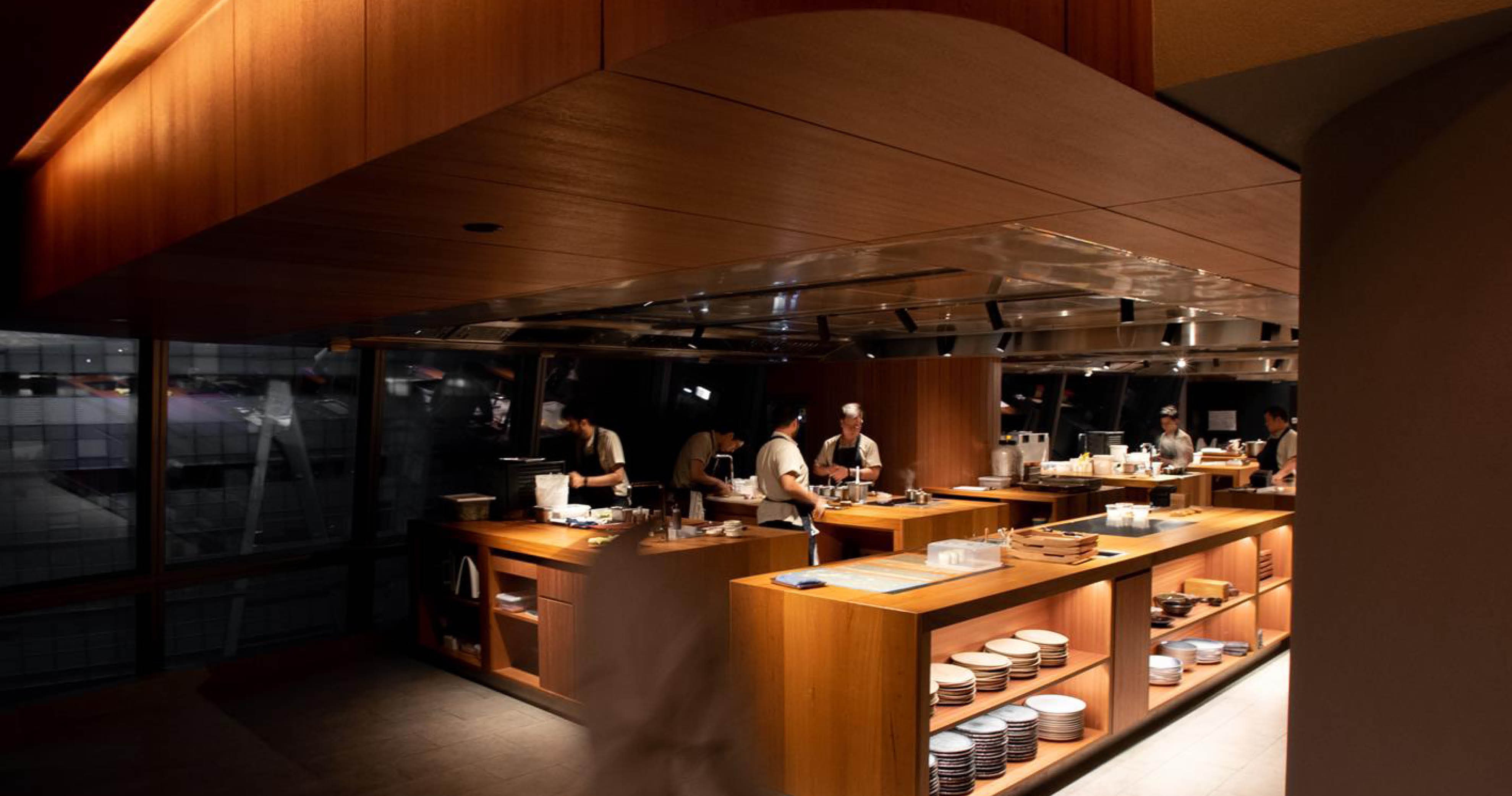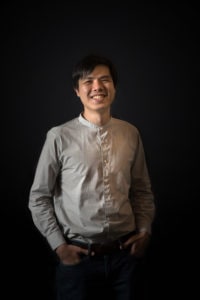
 The government just announced another two weeks of lockdown,” says feted Malaysian chef Darren Teoh, speaking on Zoom from the quiet surrounding of his Kuala Lumpur restaurant, Dewakan. “We’ve been on and off for the whole of last year.”
The government just announced another two weeks of lockdown,” says feted Malaysian chef Darren Teoh, speaking on Zoom from the quiet surrounding of his Kuala Lumpur restaurant, Dewakan. “We’ve been on and off for the whole of last year.”
“Seeing the restaurants that I consulted on struggle does affect your mental health,” says Brandon Kua FCSI (right), consultant with Kuala Lumpur-based food consultancy firm Kitchen Inc. “Thankfully we’re still able to stay in touch with friends, share our issues and encourage each other.”
In late 2019, Teoh worked with Kitchen Inc to relocate Dewakan from the campus of Kuala Lumpur’s UOW Malaysia KDU, the private university that funded the restaurant. After five years on the campus, the high-end, Malaysian ingredients-focused eatery moved to the 48th floor of Naza Tower in the upscale, centrally located Platinum Park.
Sourcing the best local ingredients
Placed 46th in the 2019 Asia’s 50 Best Restaurant list – the only Malaysian entry – Dewakan was already Kuala Lumpur’s hottest high-end restaurant. Then Covid-19 hit and bookings at the venue, which can host around 50 diners, halved, as the influx of foreign foodies, comprising much of the clientele, halted.
With re-focusing to delivery tough for a restaurant known for high-end, wine-paired tasting menus, the downturn is a familiar story for many in the southeast Asian elite-dining sector. However, with vaccines providing a potential path out of the pandemic, and Dewakan upgrading its set-up just before the pandemic hit, Teoh is hopeful of an uptick in the narrative.
Some of the Malaysian ingredients used by Teoh, who previously worked with Noma and Singapore’s three-Michelin-starred French restaurant Les Amis, are rarely seen in high-end restaurants in his home country. He has sourced tarap, a fruit similar to the jackfruit and native to a few Malaysian regions. Bario rice for risotto is sourced from Borneo. Namu namu, a legume mainly found on Malaysia’s northern peninsula, has been used for desserts.
 Teoh often traverses Malaysia, managing his supply chains first-hand. “At the first Dewakan location the iconic dish was duck aged for three months,” says Joe Tan (left), Kitchen Inc’s founder. “He’ll drive to talk to the farmer. For that rice, he went to Borneo and met an old lady making special rice – she’s only able to harvest 200kg a year.”
Teoh often traverses Malaysia, managing his supply chains first-hand. “At the first Dewakan location the iconic dish was duck aged for three months,” says Joe Tan (left), Kitchen Inc’s founder. “He’ll drive to talk to the farmer. For that rice, he went to Borneo and met an old lady making special rice – she’s only able to harvest 200kg a year.”
Technique drives the equipment
Kua took Teoh’s unique ingredients demands into account when fitting out the new kitchen. “Darren’s technique drives the equipment: MKN combi-oven, Josper oven, open-flame charcoal grill and induction cookers,” says Kua. “For example, using the combi-oven to do sous-vide, to dehydrate food. It’s applying technology to your technique. This is the difference between modern cooking and conventional cooking.”
For Dewakan’s relocation the new team designed a set-up based around eight standalone cooking stations, with three featuring hob areas. “Having multiple modular stations, versus the conventional ‘French-style’ configuration, means that each station is flexible. It can be a hot station one moment then turned into a cold station. Modern kitchens are moving towards modularity, flexibility and simplicity,” says Kua.
Kitchen movement had to be smooth in appearance as well as workflow. The design is largely open-plan, with many cooking areas completely on show to diners. To keep things slick and pretty, each of the eight stations has its own waste unit, and waste water is jettisoned via pipes heading up to the ceiling.
“Most restaurants think of kitchen and dining places as distinct areas, and don’t look at them cohesively. That excludes guests from an experience, and is counterintuitive to our culture,” explains Teoh. “In a Malaysian home the best discussions are over tea or dinner and happen in the kitchen, so it’s a central part of our fabric. That was something I wanted to have reflected in the restaurant.”
One of the most interesting challenges for the team was designing a ceiling that acted as a ventilation system, rather than having extraction hoods, which could be noisy and intrusive, towering above each cooking station. A stainless-steel ceiling with multiple small ventilation points was designed, also incorporating air conditioning and
fire sprinklers. “I think it’s it’s really sexy,” says Teoh, showing off the gleaming metal finish.
“Typically, in a kitchen you have extraction hoods,” says Kua. “But by running exhaust ducts in the conventional way, there’s only certain sizes you can accommodate, and it [smoke flow through pipes] has to run across the entire space. By doing a ventilating ceiling we reduced that need and incorporated everything into the ceiling. In Malaysia it’s rare.”
Inspiring young Malaysian chefs
Dewakan has made Teoh a hugely respected chef beyond Malaysia’s borders, and internships in his kitchen are in demand. Like many businesses and individuals around the world, though, he has seen his ambitions paused by Covid-19. He says Dewakan has avoided non-voluntary staff redundancies, but pivots to food delivery have had mixed results. The restaurant offers a service delivering partially cooked meals, with customers cooking the final stages at home.
The real Dewakan experience is about a proper visit, though, and its pre-pandemic success proved inspirational for many young Malaysian chefs. Kuala Lumpur’s fine-dining scene is behind that of rival cities such as Bangkok, Singapore and Hong Kong – something Teoh hoped to chip away at by promoting local ingredients at an elite level.
“The plan was to stay relevant for the next two years – with Kuala Lumpur not doing so well as a tourist destination, we were hoping to be a pull factor,” says Teoh. And in 2021? “We just want to be a very good restaurant,” he says with a laugh.
Kua is perkier on the issue. “I don’t think there’s any restaurant in Malaysia, in terms of understanding, technique and capability, comparable to what Darren and his team is capable of,” he says. “I believe Dewakan will continue to be a beacon for Malaysia in the fine-dining scene.”
Jamie Fullerton
